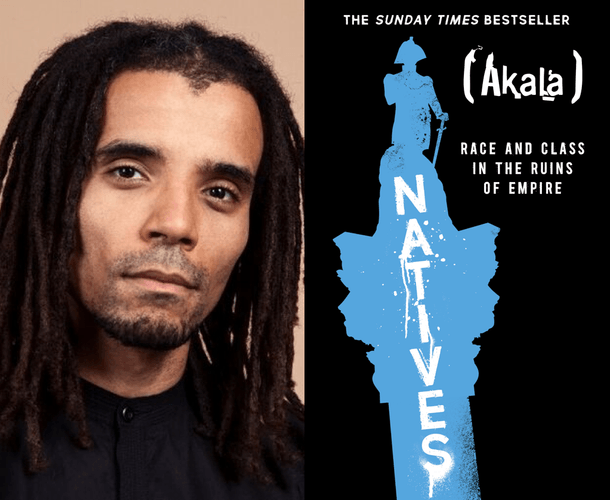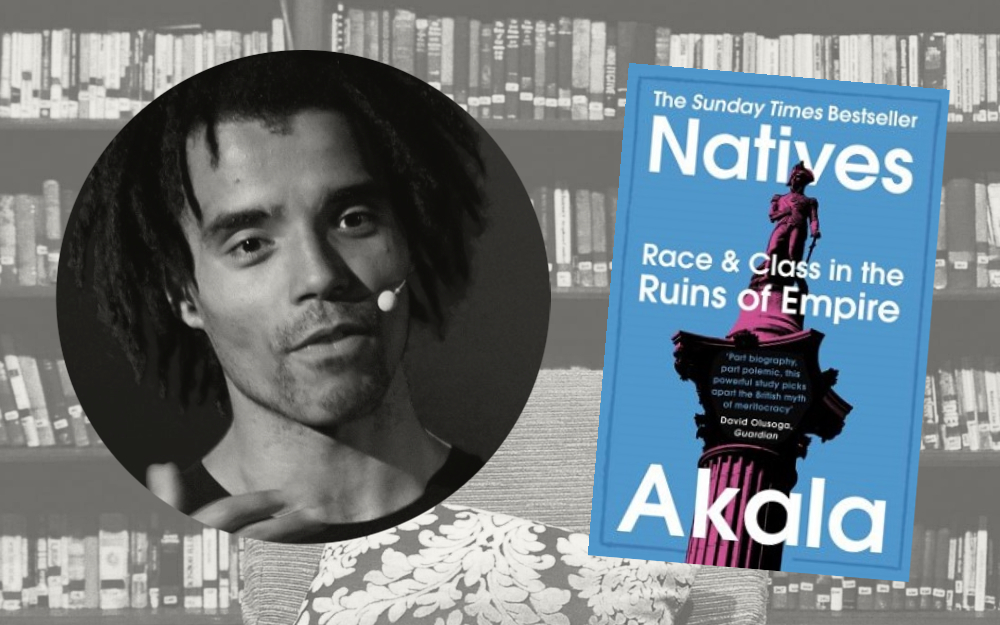Akala’s Natives: Race and Class in the ruins of empire, painstakingly exposed the manner in which Britain has attempted to distance itself from its colonialist and slave trade history, as well as its persistent racism and class discrimination. It reminds us that Britain was still enslaving even when it appeared to have renounced the slave trade, that Britain operated concentration camps in Kenya, imprisoning Kenyan people, and also reveals many aspects of Britain’s complicity in the present culture of racism.
He also reminds us about the quandary that mixed race children face, being racialised as black and how alarming the discovery can be. As Akala put it, he realised his mother was white when he was five years old and it was a devastating experience. Another traumatic experience for a black child in Britain is apparently that of elementary education. He shows us that primary and secondary schools that should be places of succour and learning are a bittersweet experience at best, for young black children due to the obvious or subliminal racism of their teachers. One of his high school teachers apparently went as far as to suggest that the Ku Klux Klan murdered black people in order to curb crime, during a classroom debate about race. All this showed the great barriers that young black people in Britain face and must face to be able to survive, let alone prosper. When living as a black child in the society in which the police, the media and your teachers continually relegate and condition you to believe that you are less than human, it takes grace, fortitude and an inordinate amount of will to rise to the surface or succeed.
Akala’s writing is lucid and imminently readable, despite explaining intellectual discourse, as he breaks down his hypotheses clearly each time. He also almost always looks at the other side of the story and accepts that there has been progress and that even he and others like him are privileged to an extent, ironically due to their closeness to “whiteness”. By this he means that being born black in countries like Britain, affords more opportunities than others born in much poorer countries in the global South.
His description of how the media as well as the “cold war” era made Cuba and Castro so much more villainous than they should be, despite playing a significant role in helping to dismantle apartheid and despite having one of the best healthcare and educational systems in the world was another illuminating aspect. The manner in which he used the comparison of Mandela and Castro as a way of demonstrating this, helped make the discussion more real. This and the use of his life experiences, with the police in Britain and other countries, with his teachers and with members of his own family, including his racist white grandfather, were all instrumental to making this book very enjoyable to read, despite its heavy subject matter.

It is a testament to his self discipline as well as a combination of favour and luck as he himself admits, that he was able to extract himself from the downward trend that his working class upbringing as a racialised black youth cast him into, and it is also extremely gratifying that he continues to draw attention to the plight of young black and brown people born into Britain and similar Western counties, especially in the face of recent Nationalist white movements, in these countries. As he puts it, “we are all influenced by what we are exposed to and experience; the best we can hope for is to try and be as fair as possible within the bias inherent in existence”.
Another striking feature of this book is the amount of research done into African, Asian and world wide history. It was impressive to read quotes about Ile-Ife and Benin in Nigeria, as well as discussing Japan, China, South Africa and Cuba, amongst many other countries. One would expect extensive research when embarking on such a project but with Akala, the knowledge of his subject appears to transcend that acquired simply from research for a book. It is almost as if he has lived the various lives in the different nations, the way he talks about them.

The book delves into a great deal of history and politics and as such, reviewing it appropriately requires a deeper knowledge than I possess. From my point of view though, I am not at all surprised at all its accolades and believe it deserves more. It is a tour de force and the writer delivers with brilliance, humor and introspection, and is clearly an immensely well-grounded individual. I was enlightened, in the true sense of the word, just by reading it.
Author: Bosede Afolabi



